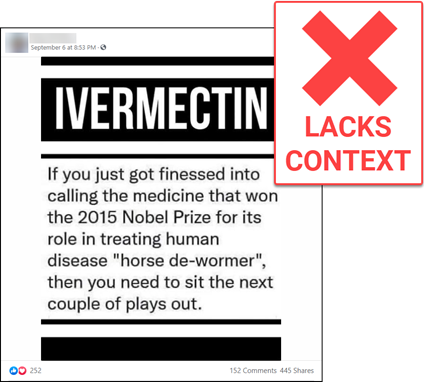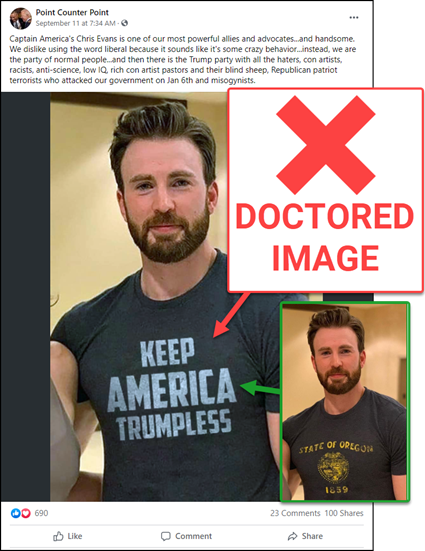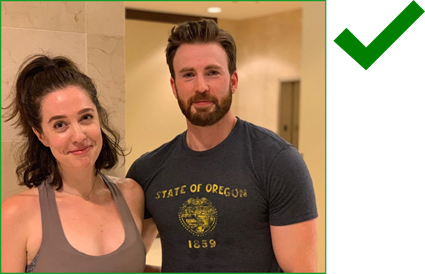GSAN: ‘The Facebook Files’ | Satirical protester | Chris Evans’ fake shirt
|
|
|
Learn about news literacy this week |
|
Top picks
|
|
Viral rumor rundown No, an anti-vax protester didn’t create a sign saying he knows more than “the scietists”  NO: This man is not an anti-vaccine protester. NO: The sign he is holding doesn’t contain a sincere message. YES: He is a counter-protester who created the sign — which includes “I demand my right to be ignarant [sic] & selfish” on the other side — to satirically oppose an anti-vaccine demonstration outside of a Toronto hospital on Sept. 13. A 2015 Nobel Prize doesn’t mean ivermectin is effective to treat COVID-19  NO: Ivermectin itself didn’t win a Nobel Prize in 2015. YES: Two researchers who in the late 1970s discovered that avermectin, a precursor to ivermectin, was effective in treating diseases caused by parasites, were awarded the Nobel Prize in Physiology or Medicine in 2015. NO: This is not evidence that ivermectin is effective in treating COVID-19. YES: Clinical trials for ivermectin are ongoing to evaluate its efficacy against COVID-19 after some small, observational studies suggested it might be. NO: Available data does not show that ivermectin is effective against COVID-19, and the FDA is urging people not to use it for this purpose.
Actor Chris Evans didn’t wear a “Keep America Trumpless” t-shirt  NO: The actor Chris Evans did not wear a shirt that says “Keep America Trumpless.” YES: This is a doctored photo with text on Evans’ shirt that was changed. YES: Fan accounts on Instagram and Twitter shared the authentic photo, which shows that the design on Evans’ t-shirt was actually the emblem from the Oregon state flag. YES: Evans has been publicly critical of former President Donald Trump in the past.  The original photo shows that Evans was wearing a “State of Oregon” shirt. NewsLit takeaway: Printed messages, including those on t-shirts, are easy to doctor and should always be verified before being shared. As Dan Evon points out in his fact-check of this photo for Snopes, doctored t-shirt rumors featuring celebrities are common — and sometimes feature shirts for sale online, which underscores one possible motivation for their creation and circulation. |
 Turbulent and polarizing current events may have boosted Americans’ understanding of certain basic civics concepts, new data suggests. But at what cost? A new CNN poll finds that more than half (56%) of Americans “feel democracy is under attack.” Some doctors are spreading COVID-19 misinformation — without repercussions. Why 'do your own research' isn't always the best advice — and so often goes wrong. And finally, could opting-in to op-eds help people better separate opinion pieces from news? (A tough task for many.) |
|
Thanks for reading! Your weekly issue of Get Smart About News is created by Peter Adams (@PeterD_Adams), Hannah Covington (@HannahCov) and Pamela Brunskill (@PamelaBrunskill), and edited by Mary Kane (@marykkane). |
|
